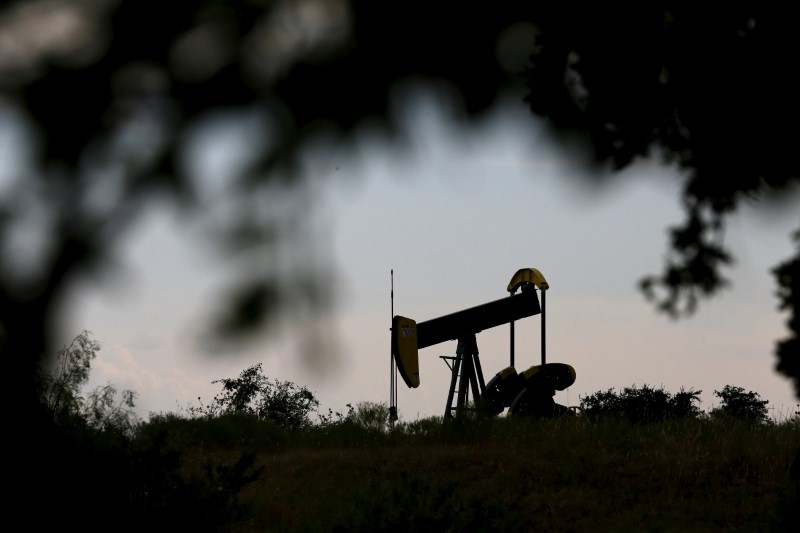By Ernest Scheyder
HOUSTON (Reuters) - Damage and delays from Tropical Storm Harvey will hold the U.S. oil industry back from achieving a targeted 10 million barrels per day of production anytime soon, according to analysts, a setback in America's fight for global market share with OPEC.
The storm, which flooded refineries, wells and pipelines across Texas, added to a string of problems oil companies already faced, like low crude prices and expensive engineering challenges at new shale wells.
Earlier this year, oil analysts and some company executives had anticipated that the United States could top the 10 million bpd mark by year-end. That would have been a 14 percent increase, taking U.S. output to a level not seen since the 1970s.
But then Harvey knocked out about a quarter of U.S. refining capacity and shuttered transport routes for crude, gasoline, diesel and other products. The storm's impacts sent gasoline prices soaring but also crimped demand for crude.
Bringing all that infrastructure back to normal operations could take weeks or months.
"Harvey is going to have a longer effect on the oil industry than anyone would have imagined," said Dan Katzenberg, an oil industry analyst at R.W. Baird & Co. "It's just a real mess on so many levels."
The Organization of the Petroleum Exporting Countries is frustrated that the storm has not pushed global prices higher, with one OPEC delegate telling Reuters, "It seems no event will move the oil price up much."
Slipping production after a major storm is not unprecedented: U.S. output slipped after Hurricane Dennis in 1999, Hurricane Ivan in 2004 and Hurricane Katrina in 2005, forcing a range of industry and government reactions.
On Friday, U.S. Energy Secretary Rick Perry said he had authorized the release of 4.5 million barrels from the U.S. Strategic Petroleum Reserve. The move, aimed at helping a handful of Gulf Coast refiners deal with local supply disruptions, will likely depress oil prices further.
FINANCIAL STRAINS
The Energy Information Administration (EIA) earlier this year had forecast that technological and process improvements would lift U.S. production sharply, leading some analysts and executives to predict 10 million bpd by December.
But in recent months those expectations dimmed. Producers, showing signs of financial strain from the tepid oil prices, pared budgets for the year.
Companies also face problems with pressure imbalance and high natural gas levels at new shale oil wells in the Permian Basin, the largest U.S. oilfield.
The EIA on Thursday revised lower its data on U.S. oil production for June, saying it fell nearly 1 percent in the month to about 9.1 million bpd. Analysts called that a bad omen for the rest of the summer.
Harvey forced Exxon Mobil Corp (N:XOM), Royal Dutch Shell PLC (L:RDSa), Marathon Oil Corp (N:MRO), Statoil ASA (OL:STL) and other producers in the Eagle Ford shale region of Texas and the U.S. Gulf of Mexico to halt production and the drilling and fracking of shale wells.
More than a quarter of Gulf production went offline due to the storm, according to government data. In the Eagle Ford shale, producers on Friday were still assessing damage, but most saw operations slow or grind to a halt.
"At this point, we're really waiting to see what the cumulative effect will be" from Harvey, said Paul Hesse of the U.S. Energy Information Administration.
Exxon lost nearly 100,000 bpd of production, and Shell has so far lost more than 700,000 bpd.
ConocoPhillips (N:COP), meanwhile, said it does not plan to reopen its headquarters, which abuts a Houston reservoir that nearly breached, until Sept. 11.

"That 10 million (bpd) level is just not going to happen in the next two years at least," said Anas Alhajji, an independent oil analyst and economist. "The impact of Harvey adds to existing woes."